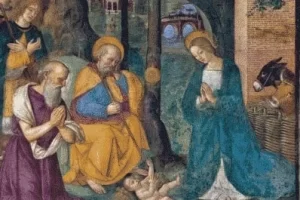Intimacy as your most valuable wealth
What is the most valuable hidden wealth of the human being? His intimacy: it is not only his interiority, but his most precious core. And lovers always exchange that which is their most beautiful fortune: “I know that in your house you have a garden / to which you always look out and wonder / When will you invite me to see it?” reads the poem “Intimacy” by Carlos Javier Morales from Tenerife in his recent A Light in Time, Poetic Anthology, reflecting well the best gift of love.
That is why, in this time of so much lovelessness, intimacy is very deteriorated and, as Javier Gomá says about the tendency of many writers -which he baptizes, with an ironic wink, as “ill-mannered literature”-, there are so many people who air “in public their shames hoping that for some unknown reason that impudent exhibition awakens our curiosity”, so many who shamelessly expose their filth before strangers.
By the way, Gomá’s criticism of these exhibitionist writers, adducing -with mockery- the injustice that “no matter how many traumas the unfortunate has suffered in his life, he claims the right to turn his literary work into a therapy and forces the public, who has not done him any harm, to be a mute witness of it”, could be applied to more than one -and one- on the beach, with the qualifier of rude people included. And with the addition of the philosopher regarding this bad literature: “In most cases one would pay not to see it”.
To dismantle intimacy is to lose a treasure
What is left to the human being as his own if he dismantles his intimacy to earn four bucks, not to be branded as a moralist or for not having educated his heart, for not having refined his instincts to civilize them and learn to live together? Because we are not isolated islets, but intertwined beings who need to learn to be free together.
Therefore, Intimacy must grow, first, in oneself through reflection on one’s own life in order to be protagonists of our life and not to be puppets of cultural fashions. We inhabit, then, our inner world, we frequent it with an active presence in moments of solitude accompanied by silence.
Along with this, “the friend, with his presence, with his attention, has helped us to finish thinking our own ideas,” says Miguel Ángel García Martí. And it serves me to emphasize the importance of the conversation in confidence with the friend, something that is very enriching: because it improves self-knowledge, because it comforts with its mere presence, because it strengthens friendship, because we receive advice….. Without this, what is friendship?
Finally, culture: “The weapon to be able to truly interpret our external reality, the world that surrounds us (…). And it also allows us to clear part of that mystery that we are every man”. García Martí’s accurate words show well how the gradual acquisition of culture nourishes wisdom and enlarges the treasure of intimacy.
Offering the treasure of intimacy to the one you love
Above all, we must learn to offer intimacy to those we love: the greater the affective closeness, the greater the opening of intimacy. And the opposite: to guard the intimate from strangers, curious, gropers and thieves, from all those who, without the respect that the person deserves, offer their intimacy to anyone -muscles, shameless sensuality-, perhaps because in their poverty or lack of love, they want to skip the precious work of the inner world and reach intimacy in an urgent but superficial way -muddy loves-.
“And your childhood, tell me, where is your childhood, / I want it / The waters you drank, / The flowers you stepped on, / The braids you knotted, / The laughter you lost / How is it possible that they were not mine / (…) Don’t hide your childhood from me / Ask God to unblock time / Your childhood will return and we will play”.
Thus, Gerardo Diego: sharing intimacy and childhood memories. The great treasure.
Read also: Adventure of loving
Iván López Casanova










0 Comments